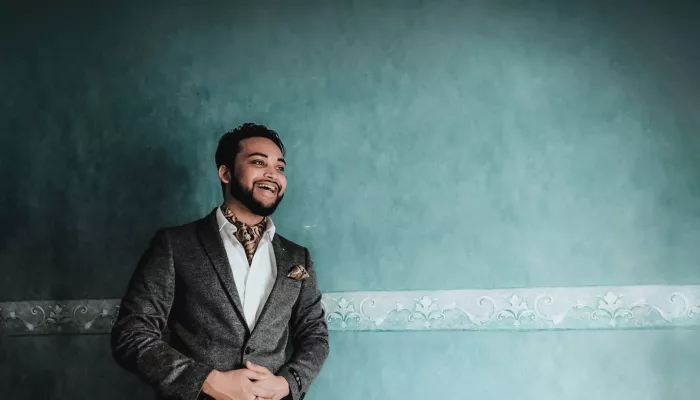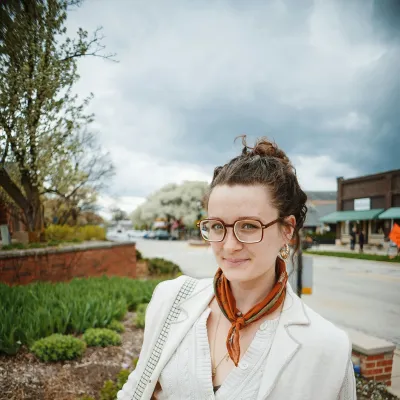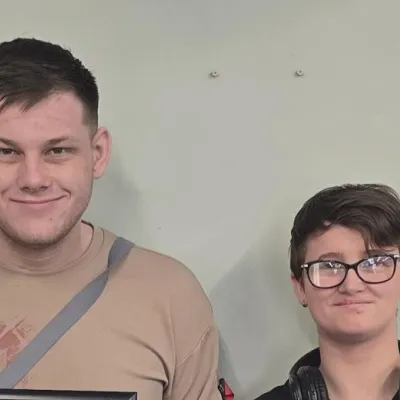Mitak was under the care of his aunt after leaving Bangladesh at a young age due to domestic violence. By the time he reached his teens, the relationship with his aunt was at breaking point and Mitak was kicked out at 16. He was placed with a foster family for two years before securing housing and being referred to Centrepoint for floating support. Today Mitak has self-published his own book about his experience growing up and has set up his own business.
Thrown out and rough sleeping
Mitak remembers growing up with his aunt as a tempestuous period of his life.
“I didn’t have a lot of guidance growing up and my aunt didn’t really didn’t care about what was going on in my life. Most of my friends didn’t know what I was going through without my parents around. I found it hard to focus at school. I wanted to be a kid and to enjoy my childhood, but had to mature very quickly and think about adult things from a very early age.”
When Mitak was thrown out of his aunt’s home, he slept rough for about two days and then stayed with a friend for a few weeks which is when he approached New Horizons Youth Centre. They put him in touch with Coram Voice who found him legal help and advocated for Mitak by challenging the local borough’s decision to return Mitak to his aunt’s home; a place Mitak describes as very damaging.
“It made me feel rubbish because I had to go through everything again. I was thinking, do I really have to do this to be heard and to explain all the details as to why I’m not okay," he reflects.
The legal case went on for a month or two and it was eventually decided that Mitak should be placed with a foster family.
“I’ve always had the sense that I don’t belong. Going to that house, I felt very low. The lowest I’d ever felt. For the first week, I felt very out of place; that I was living in strangers. I didn’t want to come downstairs. After a week, I gathered the courage to speak to them and try to get to know them which helped.”
Mitak stayed with the family for about 7 months before moving into semi-independent housing when he reached 18.
“It took me back to square one again because suddenly I had to pretty much fend for myself completely: cook, clean, pay bills and I was clueless.”
Support from Centrepoint
Mitak received floating support from Centrepoint which helped provide him with the skills he needed to become independent.
"Shiblu (my support worker) really got me through. I think I would have been lost without him. He really guided me. I was very ambitious and I always wanted to do a lot of things and Shiblu really helped me understand which path I wanted to take and to give me the direction to do it. He introduced me to The Prince’s Trust which helped me to start up my business. I’ve been writing a book since I was 14: my life story and he was the one that really encouraged me to get it published.”
“Having the support from Centrepoint, helped me to put my life back together. For young vulnerable people like me, understanding who is there for us, who we can trust is difficult because we’re used to being completely on our own." he says. "Having Shiblu there, someone I could trust and speak to when things went wrong really helped me to get back on my feet. It was slow progress, but it worked in the long term. Now I’m able to do everything for myself now; I’m very independent and doing really well," he enthuses.
Peer research project on benefits
Recently, Mitak has been working with Billy Harding from Centrepoint’s policy team as part of a peer research group of former and current residents who are conducting research around Universal Credit and vulnerable young people.
“Our research has shown that there isn’t enough support for young people, especially vulnerable young people. The benefits system has a one-size fits all approach. A vulnerable young person is treated the same as everyone else rather than having a different department deal with you because you are in a much more vulnerable situation. Work coaches aren’t trained to understand your vulnerabilities. For instance, my work coach didn’t understand that I had no parents and that I was living by myself in supported accommodation.”
“People don’t realise how much some young people carry on their shoulders and on top of that, to pay bills and rent and hold down a job; it can be incredibly challenging. Also for a young person with no support, it’s much harder to get the qualifications they need to move forward and get the job they want. They need more support to get those qualifications”
Work and future
Mitak has been running his own digital marketing business since 2018. He’s self-published a book on Amazon and is in the process of writing more.
“Things are going really well for me at the moment and I am trying to write part two of my book. Writing allows me to be myself. It’s an escape for me. I got into writing because I didn’t have any other way to deal with my mental health. All the mental health support didn’t really help me, but writing did. I needed an outlet, a release so I started writing at 13. With my book, Mitak’s Incomplete, I don’t really know how I did it. It started off as a diary about my past and what I was going through and being separated from my mother. And then my journey from the old to the new me. It followed me from 13 up until 19. It showed how my perspective changed and so on.”
We are so proud of Mitak’s resilience and resourcefulness and have no doubt that he will achieve his goals. Well done Mitak!




